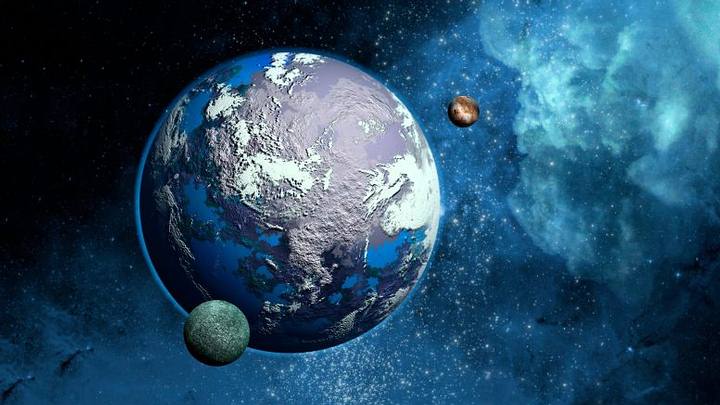NASA has just discovered a planet even better for life than Earth

The NASA has announced the discovery of a planet that could be even more conducive to life than Earth.
Our planet is sending us warning signs in the form of increasingly devastating natural disasters: fires, floods, hurricanes, earthquakes, and volcanic eruptions. These events indicate that Earth could be reaching a point of no return in terms of habitability. The search for a new home has become an urgent necessity for humanity's survival.
The colonization of Mars has been considered, but it's not as promising as it seems. Radiation and other factors make Mars inhospitable. So, where can we find refuge? Scientists have taken the search for alternative planets to the next level, focusing on "super-Earths," planets that could be even better than our own home.
The Perfect Planet

Earth, despite being our home, is not necessarily the ideal planet for hosting life. It has been discovered that mass and temperature are crucial factors. A perfect planet should have approximately double the mass of Earth and an average temperature of around 25°C. Moreover, a dense atmosphere would be essential to protect against radiation and other cosmic hazards.
The Challenge of Trappist-1b
Trappist-1b stood out as a promising exoplanet, but it's located at one-tenth of the distance between Earth and the Sun. This makes it receive four times more stellar light than Earth, leading to extremely high temperatures. Additionally, its orbit is complicated, resulting in extreme climates and inhospitable conditions.
Kepler-22b: A Ray of Hope
Kepler-22b, the first rocky exoplanet discovered, offers some hope. Although it's larger than Earth, it has conditions more similar to ours. A year on Kepler-22b lasts 290 days, and its orbit is positioned to receive a similar amount of sunlight. However, its synchronous rotation creates challenges, such as extreme temperature changes and unusual gravity.
Adaptation or Extinction
Surviving on a new planet will require adaptation. Low gravity could transform human appearance, and evolution could create shorter and more robust beings. Homes on these worlds would need to be innovative, such as ice bubbles or underground bunkers.
Frequently Asked Questions (FAQs)
Why is Earth not the ideal planet for hosting life?
Earth, despite being our home, does not meet all the necessary criteria to be the perfect planet for life. Factors such as mass, temperature, and atmosphere are crucial for habitability, and Earth is not the only one in the universe that meets these criteria.
What is a "super-Earth" and why are they important in the search for habitable planets?
"Super-Earths" are exoplanets that have characteristics similar to Earth but with some improvements. They are important in the search for new homes for humanity due to their potential to be more suitable for life than our own planet.
What are the challenges of adapting to a new planet?
Adapting to a new planet poses numerous challenges, including low gravity, changes in human appearance, and the need to design innovative habitats to ensure survival.
Conclusions
The search for a new home in space is an immense and fascinating challenge. Each exoplanet has its unique characteristics and challenges. Humanity is at a crossroads, facing the need to change and adapt if we want to survive beyond Earth. Space exploration offers a glimpse into the future of our species, in a world where adaptation and innovation are the keys to survival. What will be our next destination in the vast cosmos?
Deja una respuesta

Artículos Recomendados